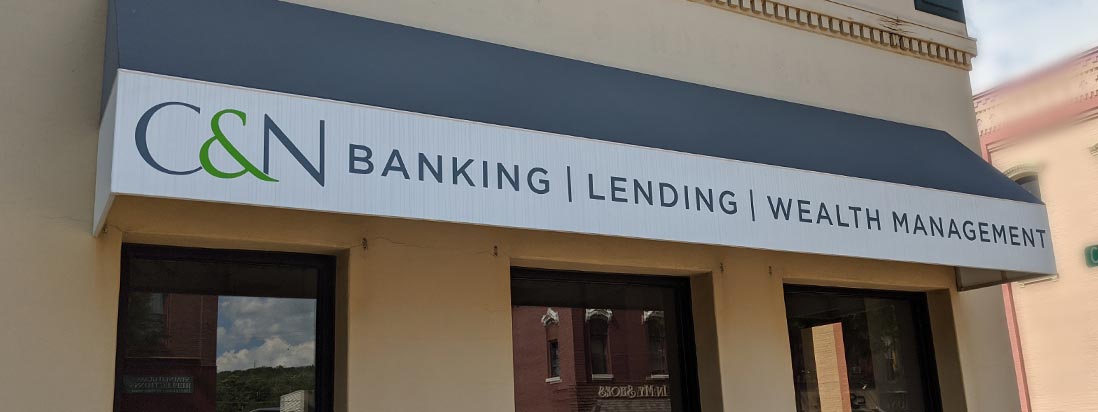Channels

Rotary

Rotary Conference

Laurel Health Centers

Penn Oak Realty

Movin Together

Bank On It

Dunhams Corner

By The Door

Questioning Life

Karschners Insurance

Ag Happenings

Back to Basics

Hornet Happenings

Live From The Hive

Momday Monday

Pennsylvania Politics

The Briefing

Weekly Highlights

Wellsboro Chamber
Bank On It: Securing Your Email
Think about how important your email address is to you. Like most Americans, you probably use it daily to send and receive information or to sign in to web applications. Unfortunately, this dependency makes your email a prime target for hackers. A hacked email account could lead to very serious problems such as identity theft and other privacy intrusions, which could affect your finances and reputation. Education and prevention steps remain one of the best ways to avoid cyber crime, but you should make sure you can recognize when your account is compromised and know the steps to regain control.
How vulnerable is my email account?
The short answer is that it can happen to anyone. It is estimated that a staggering 73 percent of all Americans have been affected by cyber crime in one way or another. Even if you follow proper security protocol, there is still the threat of large-scale email system attacks, much like Yahoo’s data breach in 2013 that affected an estimated 3 billion users.
That being said, there are steps you can take to mitigate your risk. The best defense against hackers will always be to take steps to protect your information online. This includes securing your cell phone, proper password management, making sure your software is up-to-date, and educating yourself to identify the many types of scams that are out there. By following these best-practice procedures, your vulnerability risk is much lower than doing the bare minimum.
How do you know if someone has control of your email account?
Many times, we may not be aware that our account has been hacked until it’s too late. For many, the first indication is from a friend or business associate who tells you that they have received a strange email from you. You may also find that your password no longer works or your security questions have changed. These are the major warning flags of being hacked, but you should also look for the subtle ones. If you see several undeliverable email messages in your inbox or notice emails in your sent folder that you did not initiate, you should take steps to take back control of your email account immediately.
How do I take back control of my email account?
If you suspect your email account has been compromised, it’s important that you resolve the issue as quickly as possible. The more time a hacker has inside your email account, the more damage they can do. Here is a list of things to check to make sure the hacker can’t access your information:
– Change your password and any security questions on your account. Make sure the hacker can’t get back into your account and do any further damage.
– Check your sent folder to determine if any email has been sent that you didn’t initiate. If an email has been sent without your knowledge, notify people that have been affected immediately.
– Perform a scan on your computer for malware and viruses. Make sure the hacker hasn’t uploaded anything harmful or that can extract personal information from your computer by performing a scan to eliminate any potential threats.
– Check the rules in your email system, specifically looking for new forwarding rules you haven’t created. Rules are a way to automate the management of incoming email messages and tasks, such as replying or deleting messages. Hackers can change the rules in your system to forward emails to another email address so that incoming email is directed to them.
– Change the password on any accounts that have the same credentials as your email account. If your internet banking, Amazon account or any other internet-based system uses the same credentials as your email account, the hacker could potentially sign in to all of these. Update them immediately.
– Contact your email provider and monitor your other online accounts for suspicious activity. This will help prevent and limit any damage the hacker can do to your accounts or others.
– Consider using multifactor authentication for your email account. This means setting up another step beyond login ID and password to verify your information prior to accessing your account. These include fingerprint identification or having a security code sent to your cell phone.
We often take the security of our email account for granted until it is too late. By knowing how to recognize when your account is compromised and understanding the steps to regain control of your account, you will be prepared in the event a hacker targets you.
Credits:
Videography: Andrew Moore
Video Editing: Andrew Moore
Writing: C&N Bank
Anchor: Lauren Gooch
Correspondent: Rhonda Pearson
Produced by Vogt Media
Home Page Sponsors: Citizens & Northern Bank






































